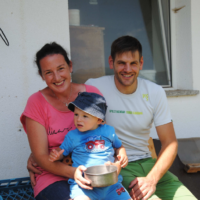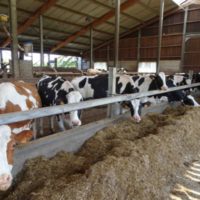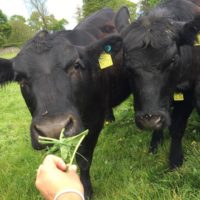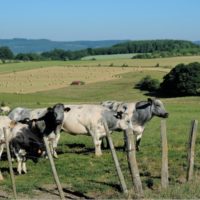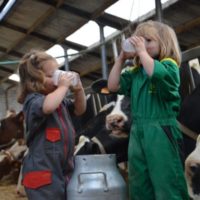Grazing management with dairy goats and production and marketing of regional products
Practice abstract
Description
Since keeping dairy cattle on the very steep grassland of the 8.5 ha farm was no longer profitable, Helmut Grossgasteiger decided in 2006 to change the management. He converted his parents’ cow tie stall into a loose housing with low investments and introduced organic farming with grazing goats to reduce the workload. Since the sale of goat milk was difficult, he decided to refine the milk on the farm and set up a farm cheese dairy.
The about 70 dairy goats of the ‘Weiße Deutsche Edelziege’-breed graze from mid-April to the end of October on the steep, 4.5-hectare pasture, which is also mown once per year. The grazing form is a continuous variable stocking. The remaining grassland is used as a meadow with 2-3 cuts per year. In addition to grass and hay from the farm grassland, the goats receive 400 g of a grain mixture daily. The seasonal lambing in spring leads to a reduction in the amount of work required in the winter months and thus enables the family to take time out and relax.
In the farm cheese dairy, 30,000 l of milk are processed annually and completely refined into cheese. The seasonally available products are marketed to local gastronomy, resellers and in the farm shop.
The prerequisites for grazing are the presence of contiguous grazing areas close to the farm and a learning phase concerning how to manage the animals and the pasture. Especially in the first few years, periodical overseeding is necessary to promote the transformation of meadows into pastures with a dense sward. Since the goats are exposed to high parasite pressure due to grazing, regular deworming is necessary.
Abstract also available in:
Dutch | French | German | Italian | Polish | Swedish
Additional information
| Farming system | organic farming |
|---|---|
| Domains of innovation | grazing management system, marketing |
| Main types of animal | dairy goats |
| Country | Italy |
| Product type | Practice abstract |
| Language | English, German |

